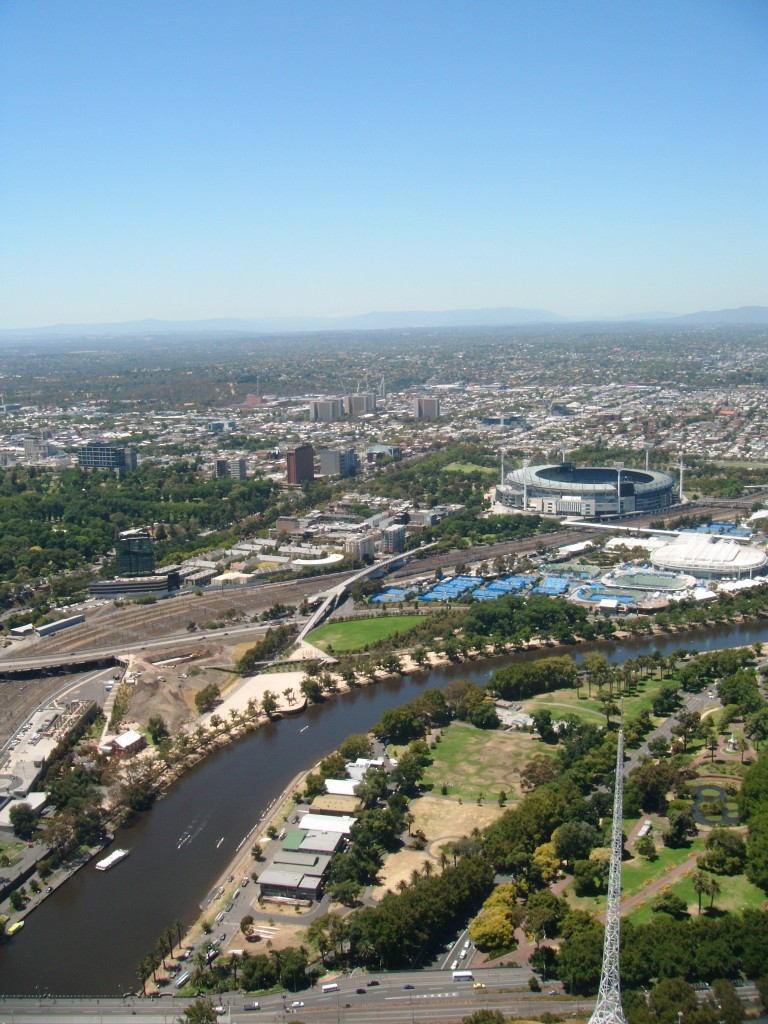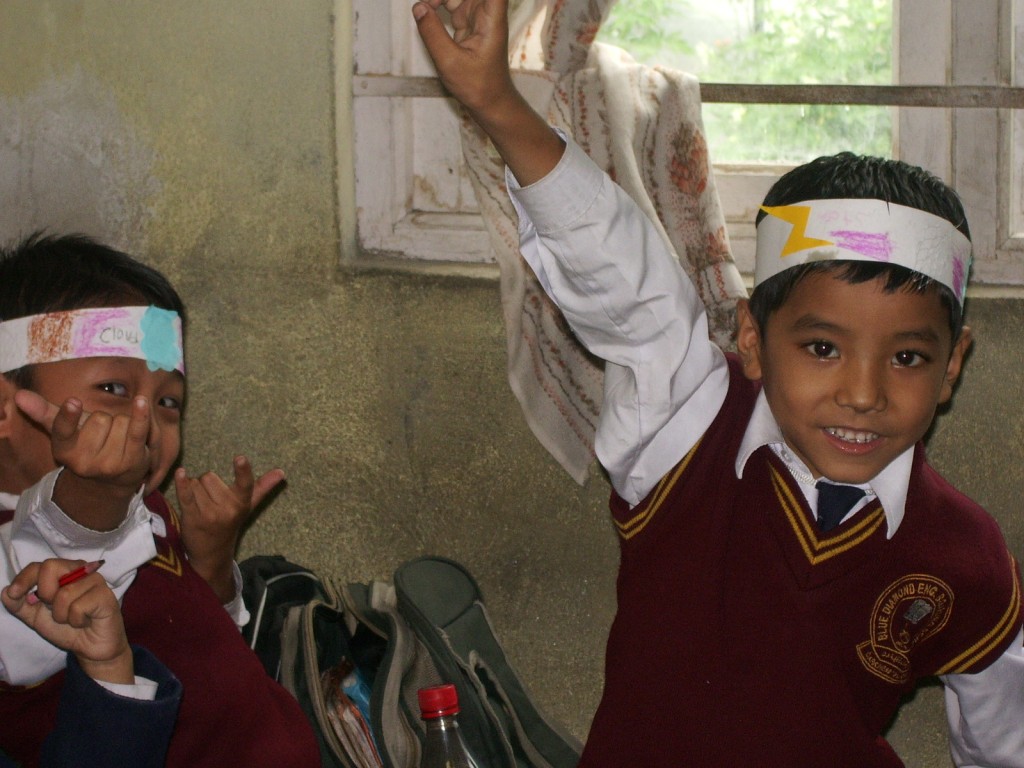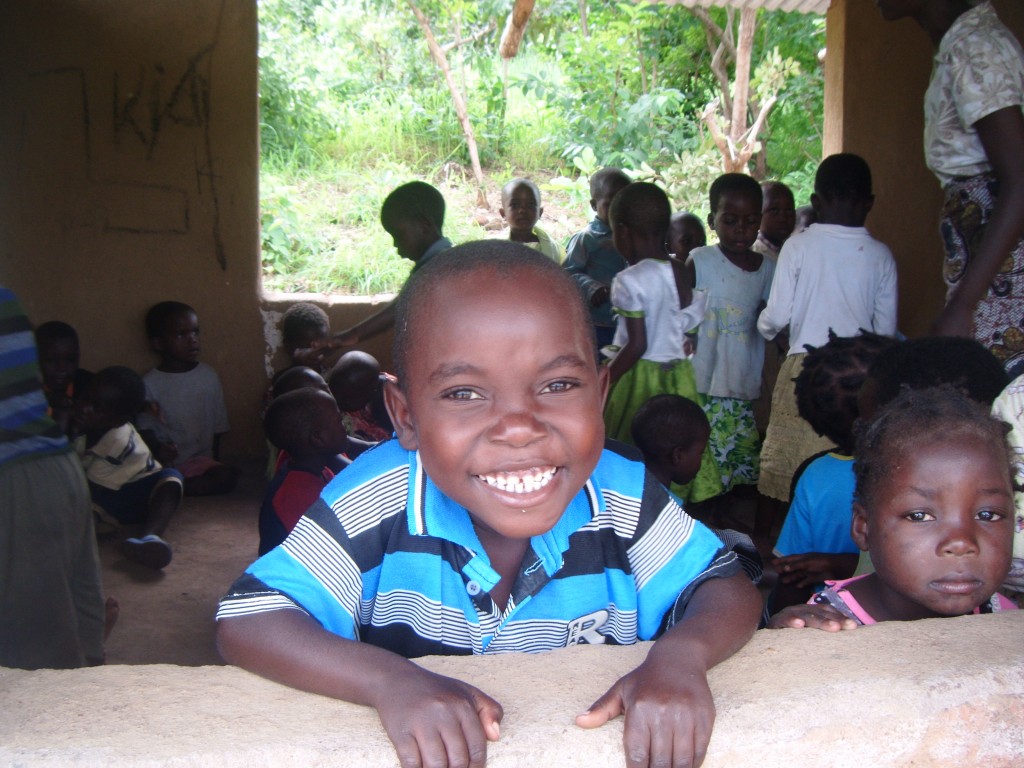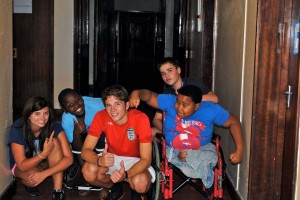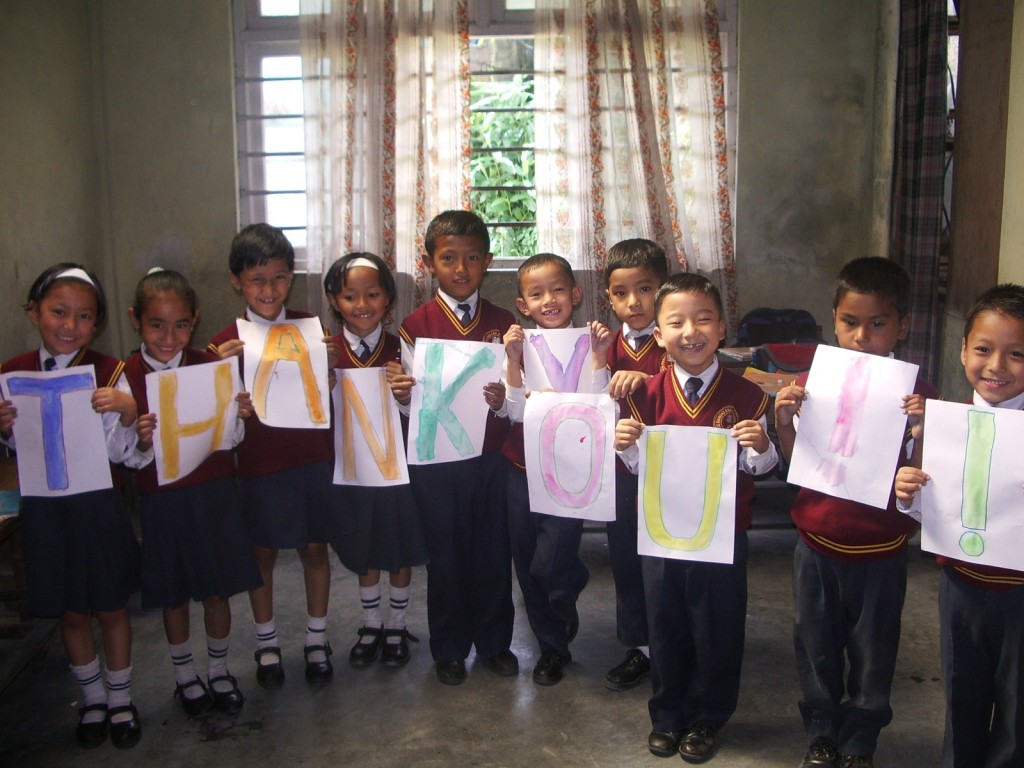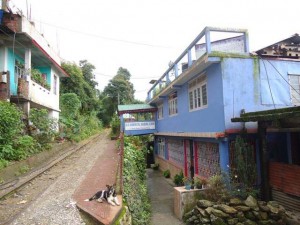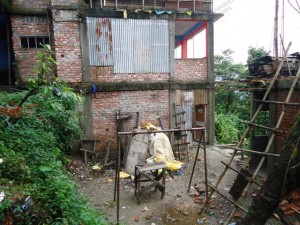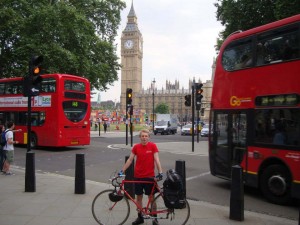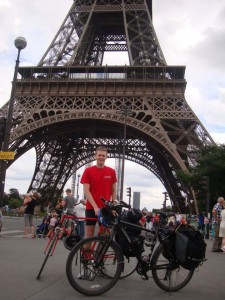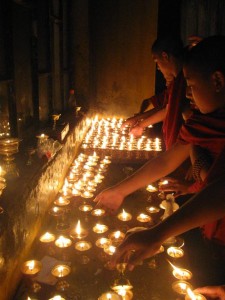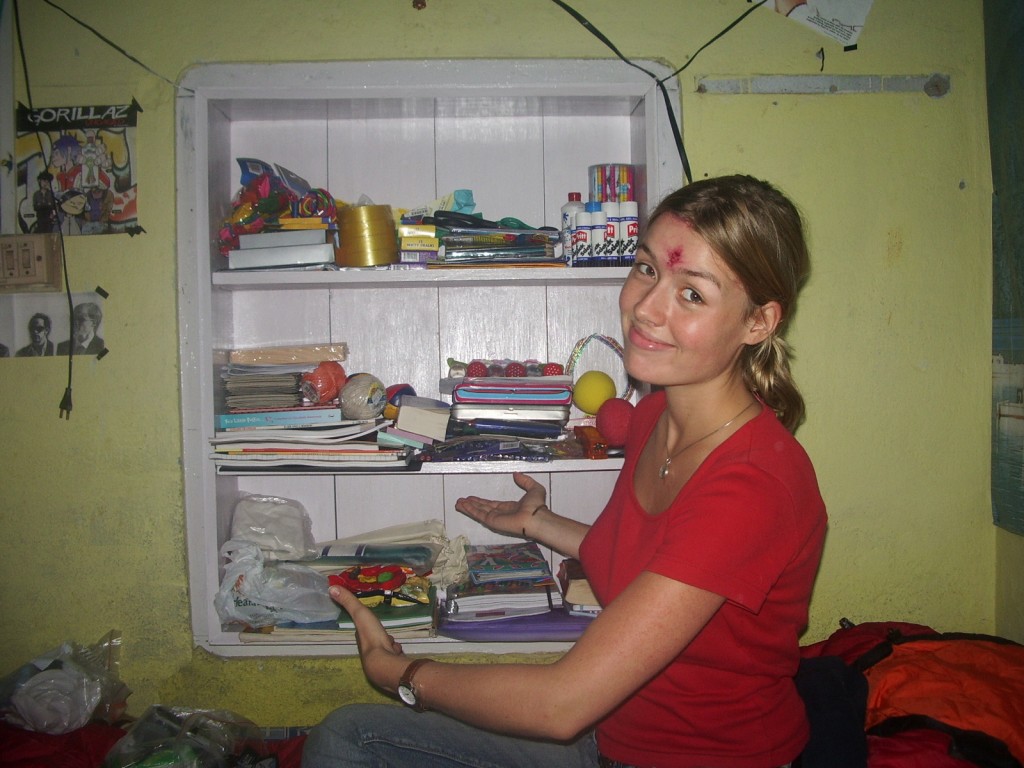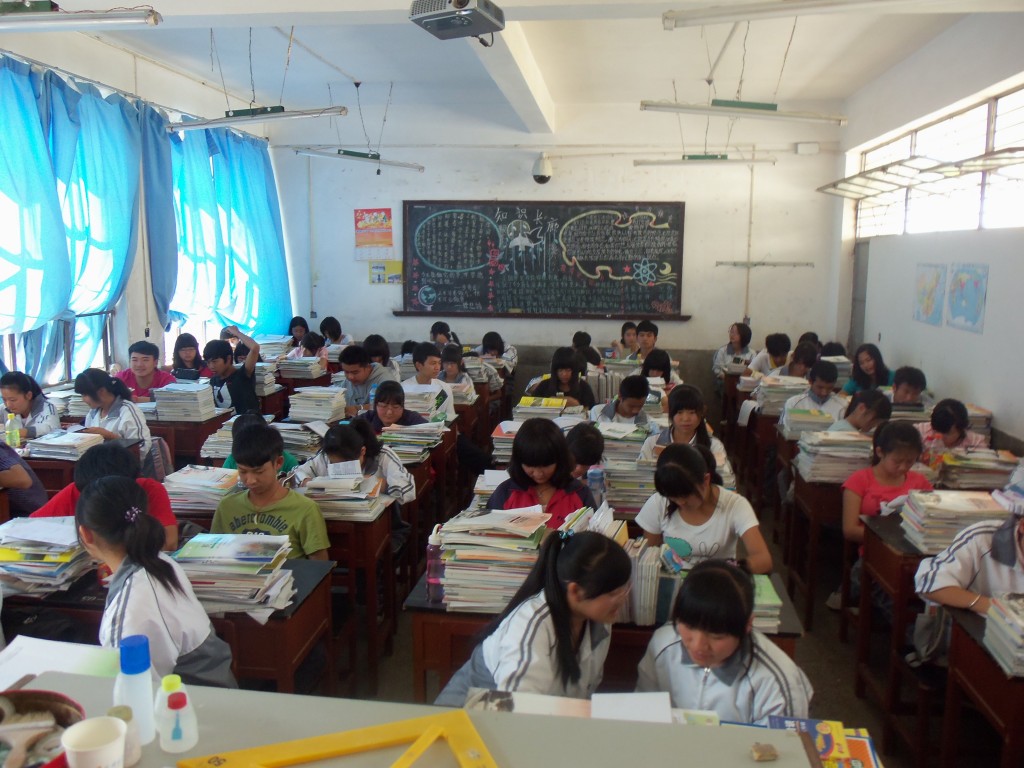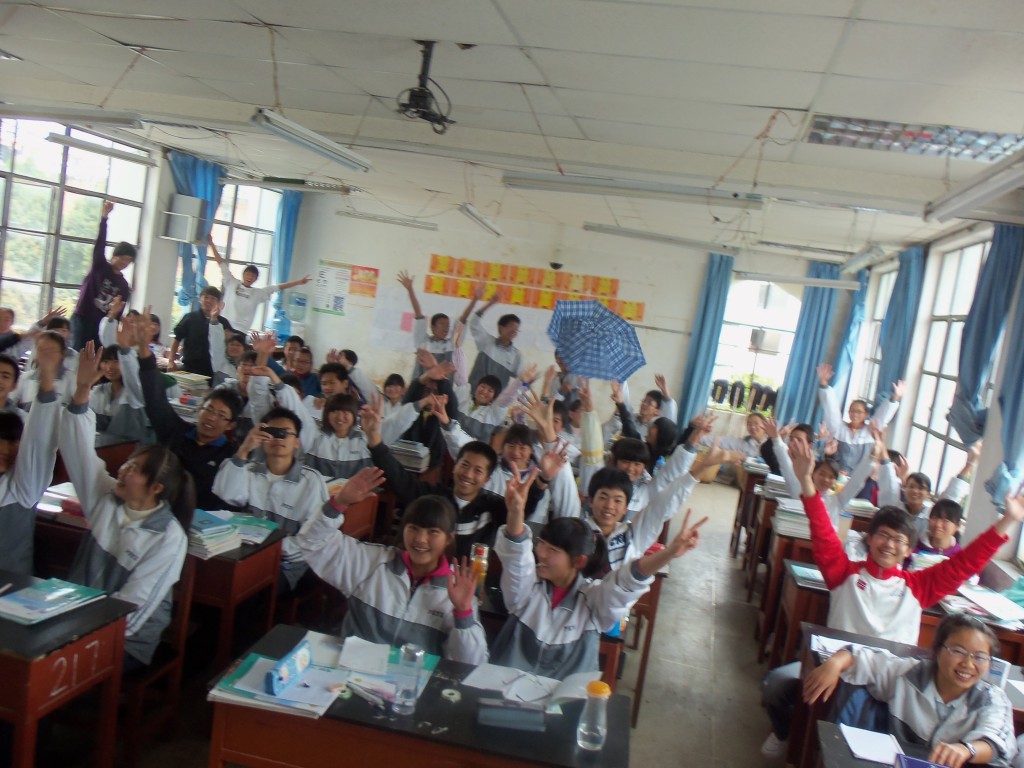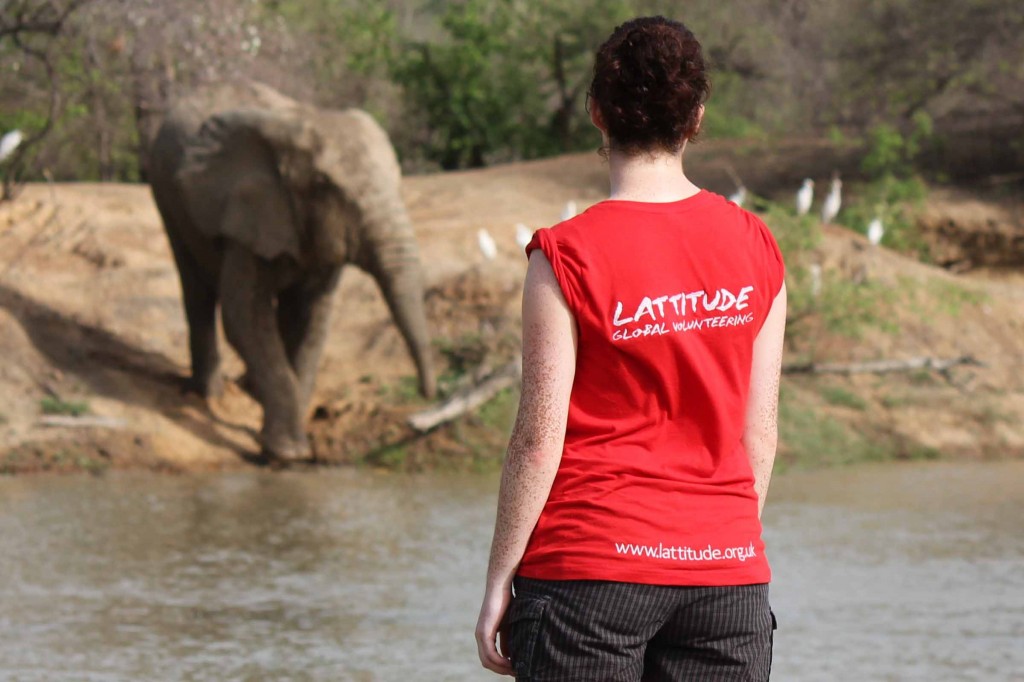Taking a gap year: Q & A session
Q: What is a gap year and when do students normally take one?
A: A gap year is a year out, a break, some time off and usually a time to travel, for young people. Typically, a gap year is taken after school or college, before the young person goes to university or into a job, but there is an increasing rise in young people taking a gap year after university, or just as a break between jobs.
Q: Why do young people choose to do a gap year?
A: There are loads of reasons why young people choose a gap year; it could be just to get a break from education, it could be to get some work experience in a particular field or learn a new skill such as speaking a language fluently, or it could be just to travel and see more of the world. What’s important though is that you choose to a gap year for the right reasons, for yourself and not because others are telling you do it.
Q: If applying to university, should you apply first and defer your entry, or apply after you have taken your gap year?
A: Lots of people apply to university and ask for a deferred entry, so that they can secure their place before going on their gap year and then have something ready and waiting to come back to. The majority of universities are happy to do this. Alternatively you can apply to university whilst you are on your gap year as applying through UCAS is all done online, and you can nominate someone receive any correspondence on your behalf.
Q: If a student is looking to improve their chances of getting into university, what sort of things do universities like to see done on a gap year?
A: Whatever you decide to do on your gap year, make sure it is worthwhile. If you are just looking to improve your CV then doing some volunteering will enable you to gain so many new transferable skills such as communication, leadership, initiative and presentation skills, all which will be highly valued by universities when you come to apply and at interviews. If you are applying for a specific course, such as to study medicine, getting some work experience, for example volunteering in a hospital, will really help your application.
Q: What kind of things do young people do on gap years?
A: Many young people use their gap year to travel and see more of the world. This might be through buying a round the world plane ticket and covering as much ground as possible, stopping off in many parts of the world and sight-seeing. Others want to do some adventure travel, undertaking treks and expeditions, and others choose to volunteer, spending a significant amount of time in one country, living and working with a new community, contributing their time and learning new skills and well as giving back to those less fortunate than themselves. Whatever you choose to do, make it count!
Feel Good Moments
At Lattitude Global Volunteering our main priority it to make sure our volunteers have incredible experiences volunteering overseas with us. That’s why we make every effort to support them every step of the way, from application and pre-departure support through to their departure and whilst on placement, and then on their return, through following up with our Debrief workshops.
And for the Lattitude Team, in all our offices in the UK, Australia, Canada and New Zealand, hearing back from volunteers who have had a brilliant time away, is one of the most rewarding parts of the job. We share ‘Feel good moments’; quotes, photos, videos and reports that come in from returned volunteers, around the office. It’s proof to us of how worthwhile what we are working for is, and how global our achievements as an organisation, hosting partners and volunteers are.
Here are a few of our latest ‘Feel good moments’ we’d like to share with you all.
Eleanor volunteered in Ecuador last February, this is an extract from her bursary post placement report:
“I would just like to thank Lattitude again for the amazing opportunity it presented me with, I have learnt more in those 6 months than I have in a long time. I have a wonderful relationship with my host family who came to the Galapagos Islands with me! And we talk nearly every day. I learnt things I never dreamed of learning and I have friends now that I cannot imagine my life without. I will never forget a single day I spent in Ecuador and it was the best thing I have ever done in my life.”
Fiona has just returned from volunteering in Ghana. She has made two really fantastic videos about her time on her Lattitude placement. To watch them, click on the corresponding titles:
A day in the life of Madame Fiona
Sam volunteered with us in South Africa in January. He wrote to us to share some of his photos:
“…I give full consent for Lattitude to use all of the attached for any publicity work whatsoever and again must thank everyone at Lattitude so much for allowing me to undertake the greatest experience of my life!!…”
It’s also so nice to hear back from our hosts. We recently received an email from our hosts at school in India where two of our volunteers, Martha and Fiona, have recently returned from:
“Our previous volunteers Martha and Fiona did well during their placement session. We are very much thankful to you and Latitude Organisation and to the country manager for this great helps.”
If you are a returned Lattitude volunteer, we’d love to hear from you too! Do get in touch, we really appreciate it.
Lattitude fundraisers cycle from London to Paris
Lattitude Global Volunteering supporters Sam Conway and Mike Harwood recently completed a London to Paris bike ride to raise funds for a Lattitude Global Volunteering project in India.
Both keen cyclists, Sam and Mike previously cycled from Norwich to Yorkshire to Oxford in 2010, Aberystwyth to London in 2011, and so in 2012 and looking for a new challenge, decided on London to Paris! Having previously done their bike rides ‘just for fun’ (though how cycling 60 miles a day in blazing sun/torrential rain/freezing wind up steep hills, all the while carrying tent to camp in at night, exactly counts as ‘fun’ I’m not exactly sure!) they decided they’d like to fundraise for a charity this time. They decided to raise funds for Lattitude Global Volunteering, a small international youth development charity and specifically for their project Blue Diamond English School where, through Lattitude, Sam’s girlfriend Abby volunteered as an English Teacher.
Blue Diamond English School is a small rural school for underprivileged children in a remote village in North East India. Since 2006 (when Abby volunteered there) Lattitude Global Volunteering have been sending volunteers twice a year to teach English and live with the host family who own the school. Not only has the school really begun to flourish and develop through receiving volunteers, but the intercultural exchange between both Lattitude volunteers and the hosts at the school have grown ever stronger, both equally giving to each other opportunity to learn about different cultures and a way to benefit their lives.
And the school has definitely seen progress since receiving volunteers. They have been able to improve on the standard of education, particularly in teaching English, that they can offer their students, something which is of great importance to young people in India, enabling them to set sights on a better future. As Mr Thapa, host of Blue Diamond English School wrote in an email recently to Lattitude Global Volunteering:
‘We are very much thankful to you and Latitude Organisation and to the country manager for this great helps.’
As the school’s relationship with Lattitude volunteers develops so does the school itself and as such it has gone under much construction and development work to improve conditions for students and the facilities the school can offer. However, due to lack of funds and recent heavy monsoon rains, crucial development of the school ground has had to go on hold. Therefore, Sam and Mike have been raising funds to help support the construction work in the hope that it can continue and be completed as soon as possible.
Sam and Mike set off from London 10:30am on the 10th August, tweeting “incidentally, beautiful weather for a bike ride - hope it holds out…” They then cycled across London to Gatwick and then on to Newhaven to take the ferry across to France, arriving in Dieppe at 4am on the 11th August. From there they cycled for 2 days, encountering tough times: “Tough mornings cycling through the cold and dark - coffee and croissant greatly appreciated” and “Lack of water biggest problem today - France literally shuts down Sundays” to arrive in Paris “Parc de St Cloud - first sight of the Eiffel Tower” at 6:35pm on the 13th August! Completing the 250 mile challenge in 3 days, they made excellent time and, more importantly, have raised £315 for Blue Diamond School!
As Mr Thapa, host of Blue Diamond School wrote just before their adventure:
‘Your efforts and thought are unimagination. So we fills that you are one of the important supporting piller of this Blue Diamond. Mr Sam and his friend’s venture may success with great deal. Best wishes to them from the whole Blue Diamond families.’
Lattitude Global Volunteering would like to thank Sam and Mike for their great effort in raising funds for a Lattitude project. We strive to be able to continue to support our hosting placements so that we can continue to send young people overseas to volunteer, making a difference to the lives of young people all over the world.
Sam and Mike will keep their Virgin Money Giving page open until the 11th September for any last minute donations. If you wish to donate, please click here.
You can also see all the photos from their trip and of the construction work being done at Blue Diamond that the money raised will go towards, please click here.
Leaving a Legacy
By Roberta Geraci
There is one phrase that has dominated the London 2012 Olympic games, the opening ceremony and much of the press coverage, namely the official motto “Inspire a Generation”. The idea behind the motto was that not only the athletes but also the many thousands of volunteers without whom the games would not have been possible, would leave a long lasting impact on the UK and indeed inspire others around the world either to be involved in sports, culture or volunteering in their communities.
While not all of us can go on to be the next Usain Bolt, Jessica Ennis or Michael Phelps we can all think of the our impact on the future generations and help to inspire others to achieve great things. Leaving a legacy is the idea that you will be remembered once you have gone, and we all hope to have a made a positive impact on the world, however small. It may sound strange to be talking about leaving a legacy when speaking about volunteering projects for young people aged 17 to 25, but becoming a role model and setting an example for young people can start at young age. It is especially important to consider the kind of example and legacy you want to leave while travelling on a Gap year. We are all increasingly aware of the environmental impact we are leaving for future generations and we can all recognise the importance when travelling to leave a good impression and be a responsible visitor.
But leaving a legacy is about more than leaving the place as you found it. To truly inspire someone young or older is about leaving a lasting impression, be it through teaching English overseas, caring for the Elderly or helping children compete in sports. Volunteering is a fantastic opportunity to give something back to your community, to help others who may be less fortunate than you, or to inspire the next generation to greatness.
You and I may not remember the man who first taught Usain Bolt to run, the man who taught Michael Phelps to swim or the first coach who put a racket in Andy Murray’s hand, but you can bet that the athletes remember and likely sitting at home watching on TV will be those who inspired them, feeling an immense sense of pride. That sense of helping someone to achieve something, be it greatness, progress or just the first steps, is what volunteering with young people is all about and it is a rewarding experience that will inspire you as much as those you aimed to help.
Planning for the worst suitcase scenario: how to deal with lost luggage
By Roberta Geraci
It is every travellers worst nightmare, you have spent weeks planning, days packing and repacking your suitcase or backpack and then when you step off the plane and go to collect your luggage from the carousel it doesn’t appear. Likewise when travelling on a Gap year you may have your backpack stolen or you might simply leave it on a train or in a restaurant. So what can you do when your in a foreign country with nothing with you other than what’s in your hand luggage. Well with the right planning, a bit of ingenuity and keeping a cool head you may be able to transform what could be an impossible situation into a manageable one.
1) Prepare for the worst. Packing your luggage like it may be lost or stolen is a good tip, which basically means not leaving anything too valuable in the hold but rather keeping it on your person. Secondly remember to note what colour, brand, size and description of your backpack, even take a picture, just in case you loose it you can show it to any authorities.
2) Pack your carry-on wisely. The 48 hour rule is the frequent travellers first code, which basically means pack anything you cant live without for 48 hours into your hand luggage, a change of clothes, medication, travel documents etc. This is because within 48 hours you should have enough time to find suitable replacements.
3) Personalise & Label your luggage. One reason your luggage may be missing is that someone else mistook it for their own. If you own a plain black suitcase for instance it can be tricky to distinguish between them so label your luggage with your name and address and telephone number. A luggage identifier such as Smart Tag or Global Bag Tag is another clever way to track down lost luggage.
4) Fill out the forms. Don’t leave the airport without filling out the lost luggage form as often luggage is simply placed on another flight by accident but is often retrievable provided you keep the luggage receipt (usually stuck to your passport). Often airlines or travel insurance providers will cover you for lost luggage and may even be able to provide vouchers for immediate essentials. If your bag is lost or stolen elsewhere a police report is often a prerequisite to claiming insurance, so try and head to the station.
5) Buy replacements cheaply. Often when travelling you can pick up some of the missing items on the cheap be it clothes, toiletries, etc but don’t burn through all your cash, as the majority of lost luggage is found within a few days. There’s no point picking up an entire new wardrobe if your luggage is returned within two days.
Losing your luggage is not the ideal start to any trip be it a holiday, Gap year or volunteering overseas placement, but the key to managing the situation is to plan for the worst case scenario.
UCAS to drop points based A-level system
By Roberta Geraci
The Universities and Colleges Admissions Service (UCAS) has announced plans to move away from a points based system currently used by pupils applying to University, following consultation with Schools and Universities.
Together with all the recent changes to Higher Education that have occurred over the last year, the Government show no signs of slowing down and Universities Minister David Willetts highlighted the UCAS points system as in need of reform. Last year he stated the existing system sent out a “very bad message to young people” because it currently ranked all A-levels as the same. Under the current system an A*, or any other grade, is worth the same number of points across all subjects. The proposed change would be based on Universities gaining more freedom to ask students for specific qualifications and grades when offering places.
BBC News reported that in total, 63.5% of all of those who responded were in favour of dropping the current tariff system, with only 16.1% of respondents against the proposal.
The UCAS report stated, “It was widely felt that qualification and grade-based entry requirements and offers are clearer and more transparent for learners and offer those higher education providers who actively select applicants for their courses greater control over admissions.”
Despite the majority of respondents receiving the change positively, certain criticisms were raised that the move could see academic qualifications receiving precedence over vocational ones. According to the Telegraph, the change may “lead to some academic subjects such as maths, science and foreign languages being given higher ratings than more vocational qualifications.”
The UCAS report acknowledged these concerns stating, qualification and grade-based offers “could lead to a narrowing of the pre-university curriculum, as schools and colleges prioritised the delivery of those qualifications and subjects that most commonly featured in higher education requirements”.
Another potential effect of the change, may be that students are required to choose or at least more seriously consider, their desired University course and location prior to selecting A-levels, particularly if there is much variation between Universities for the same course. This could potentially place younger people (typically aged 15/16) under more pressure when choosing A-levels.
Despite these concerns UCAS seem likely to press ahead with the changes but no date has been set for them to be enforced. According to the report “The UCAS board will make a decision on the tariff in September and we continue to work with institutions to understand how the recommendations we have put forward would impact them in the future.”
Given the recent changes and proposals for the future, it is clear that the Higher Education system will likely see many more reforms under the coalition government.
It’s A-Level Results Day!
It’s that time of year again! No, not Christmas, A-Level results day! And as usual, a day full of mixed emotion. For so many, these results can determine their future, be the deciding factor in whether they get into university, or shape where they go next.
But do not panic. Help is out there, from guides to results day advice on what to do if you don’t get the grades and of course, lots of advice on other options.
And yes of course, getting good A Level grades is important and it will be disappointing if you miss out on getting what you hoped for, but it is not the be all and end all of your life if you don’t quite get what you want. You may just have to rethink your plans, and who knows, this could be a blessing in disguise! For example, you may not make the grades you need to get into university to study medicine, so why not use the next year to re-sits and do some overseas volunteering to get some work experience that could seriously boost your personal statement/CV and help support your university application.
Taking a year out, if you need to defer your entry to university to get the required grades or if you need a break before you decide what to do next, could definitely be the way forward for you. Even just to get some experience that could help boost your current grades, volunteering overseas, for example, shows universities and employers that even though you might not have been academically successful the first time around, you are willing to work hard and gain extra skills that will subsequently probably make you a more focussed person when you do come to go to university, or into work.
Use your time wisely. If you realise that, whatever your results may be, a year out is now on the cards for you, make sure you chose something worthwhile to do, that you will get something out of. Volunteering overseas is a fantastic way to help you gain lifelong transferable skills, give you invaluable life experience and will show you what’s out there. It may even change your mind about what you want to do next, as you will have time to think and consider your options, coming back fresh and ready to go into further education or will a good leg to stand on when going into employment.
Think positive – life is out there!
Wildlife and Preservation
By Roberta Geraci
One of the most popular things to do while travelling is to experience the wildlife and animals of the region, be it on a Safari in Africa, a trip to the Outback in Australia or bird watching in the UK. Unfortunately according to the WWF animal populations are disappearing at an alarming rate, due to increased threats of poaching, habitat loss and overuse of natural resources. While travelling on a Gap Year or volunteering abroad, you should consider taking the time to see animals in their natural habitat, particularly as those who see wild animals are more inclined to help protect them, but when doing so it is important to consider your impact.
The WWF recognise the threat that tourism in particular brings to animals in popular travel destinations such as Sout East Asia and India. Accordingly it has a number of recommendations about interacting with the animals and making sure that you travel responsibly and ethically. Trafficking live animals, furs, skins or other animal souvenirs is not only very damaging to the animals and their habitat it could also be illegal. The WWF note: “Whether you go around the corner or around the globe, you could stumble upon products made from endangered or threatened wildlife. Sometimes you may not even know that what you buy contains anything questionable. So, it’s up to you to read labels, ask questions, and request documentation. Use the power of the consumer to protect wildlife.”
Travelling presents a fantastic opportunity to interact with local animals, observe them on a safari, in a wildlife park or at the zoo and appreciate their natural beauty. While some may want to take a souvenir of those memories home with them, items made from animal skins, furs or tusks are often taken illegally and without consideration to the continued survival of the species. The WWF has taken steps to protect some of the most endangered animals but in 2012 it highlighted some of the most majestic, rare and unique animals that are sadly in danger of extinction from the wild. So if you visit one of the following locations and aim to see some of the animals, try to do your bit to help promote their well being and survival.
1) Asian Elephants = a sacred animal for centuries in Asia the Elephant is now at risk of further exploitation from the tourism trade. For example the founder of an Elephant Park in Thailand claims he “has known about 20 elephants who stepped on land mines and died” since 1989.
2) Javan Rhinoceros = according to the WWF there are believed to be as few as 40 Javan Rhinoceros left in the wild, making them one of the world’s most endangered animal. Formerly they inhabited many parts of Indonesia and Vietnam, but estimates suggest poachers have killed the last remaining Javan rhino in Vietnam.
3) Tigers, Asia = one of the most famous, beautiful and powerful animals known is at risk of becoming extinct in the wild. According to the Save the Tiger campaign there are as few as 3,200 remaining in the wild spread across 13 countries in Asia.
4) The Mountain Gorilla = As a subspecies of the eastern gorilla, native to Uganda, Rwanda and the Democratic Republic of Congo, the Mountain Gorilla have fallen victim to the armed conflicts that have plagued the region over the last 20 years and the increase in natural resource exploitation. A powerful but majestic creature the Gorilla as one of mans closest cousins remains in need of protection.
5) Leatherback Turtles = In the Pacific ocean the leatherback turtle has suffered at the hands of the increased fishing in the region and the danger of longline fishing operations. Recent attempts have managed to slow down the demise but the WWF suggests that it may not be enough to sustain the population longer term.
Visas - the most important thing when going overseas
By Nela Statečná
There are many things that can be either liked or disliked about the European Union. However, when it comes down to travelling, being a member of the EU has one indisputable advantage - the Shengen area. That is definitely one of the most appealing reasons why it is nice to be a member of the EU. No need for visas, free travelling through borders with ID – isn’t that nice and convenient? It certainly is. Thus, it is not surprising that after living on the continent, which has few borders that you need to worry about, many students often forget that this way of travelling does not apply to the rest of the world. Therefore, when they decide to spend their year abroad volunteering, they often need to think of getting a visa, and often more than just the easily obtainable tourist visa.
What is a visa? “A visa or travel visa is a document which gives someone permission to travel into a specific country, and stay there for a set period of time. They may be stamped or glued directly into a passport for convenience, or they may be issued separately, in the form of documents which must be carefully protected to ensure that they are not lost or stolen.”
To obtain visas can take a long time and it can be very time consuming but it is undoubtedly one of the most important parts when planning a gap year overseas. Since it is not one of the easiest steps, it is always necessary to start the process of acquiring visas well in advance. You will need a valid passport with plenty of time left on it. If your passport validity expires while you are on your trip abroad you could get into a lot of trouble. To have a valid document is simply a must.
Voluntary organisations will help their volunteers to get the right visas as you cannot volunteer or work on a tourist visa. You should, nonetheless, know everything that you can about it and not simply rely on others to take care of it. Since some embassies may take a while to turn visas around, it is really important to apply for them in advance and not leave it until the last minute. Fast track visa applications also tend to be more expensive than standard ones.
If you are travelling to or via the United States you will need to complete the Electronic System for Travel Authorisation (ESTA). It does not matter whether you are only passing through the USA or if it’s your final destination. You will need to register into the system and will have to wait until you receive an authorisation of your travel. Making a payment fee is also a part of getting the authorisation, and it will need to be done while filling in the electronic form.
Getting the right type of visa and obtaining it on time, should be never underestimated. It is a process which usually requires some time and you should also add it into your gap year’s budget. Visas are not free and they definitely should be accounted for when planning you year out and when considering all the possible costs.
